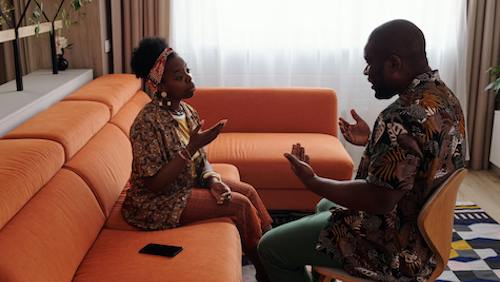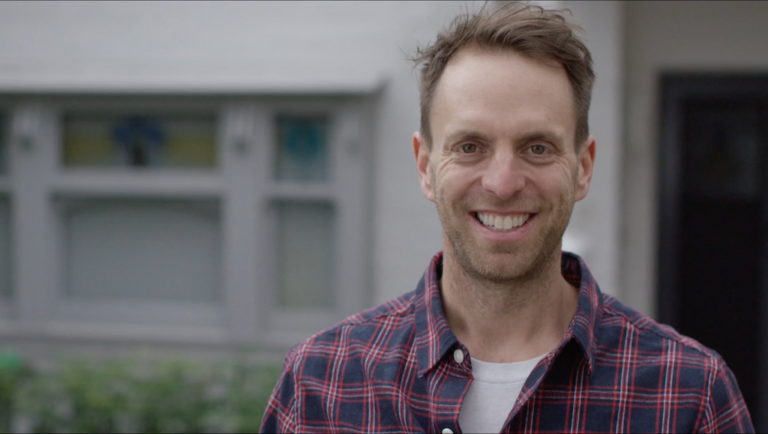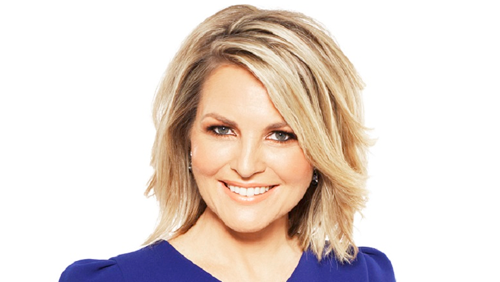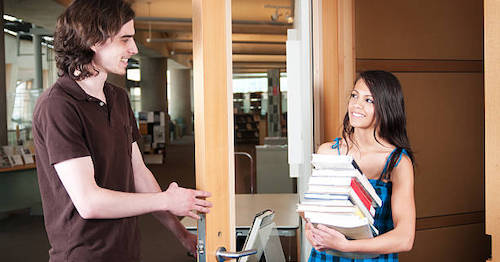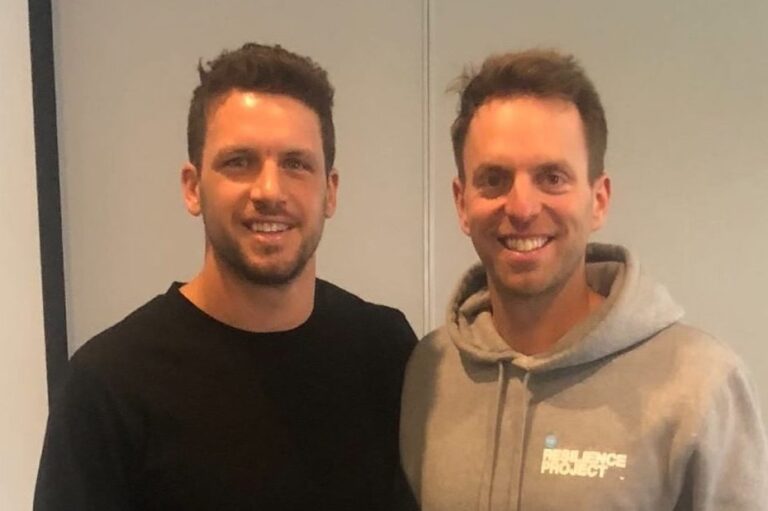We’re constantly inspired by the stories we hear from people who have been able to improve their wellbeing through gratitude, empathy and mindfulness (also known as GEM). As we know community and connection are so important to mental health, we wanted to share some of these “Everyday GEM” stories with you too.
This month, we are humbled to talk with Abbey Gelmi, who has just moved to Melbourne from Sydney to start her new job as a Channel 7 sports host.
Abbey first reached out to TRP after reading Hugh’s book. We loved hearing how she practices GEM and how kindness fills her cup.
Abbey, you obviously have a very sporty professional life, growing up in Perth were you a sports-loving kid?
Absolutely. I am one of four, so I like to say I was born into a team. I was and am a real tomboy; everything my brother was into growing up like cricket, footy, fishing, I tagged along. In high school I was into netball, athletics, most sports really. I loved the competition and achieving a goal.
How were you introduced to GEM?
I was travelling a lot for work and when flying I’d find myself mindlessly watching movies or just getting lost in trivial things, so I decided to start my own imaginary book club. Hugh’s book was on top of the list, and I read it in one sitting. It resonated so much and complemented a lot of what I had been taught by my parents growing up.
Mum is a Buddhist, and she is an amazing example of living a life of empathy and mindfulness, while dad regularly does random acts of kindness. Reading the book made me think about how I could practically incorporate GEM into my life to make me a happier, kinder person.
How has GEM helped you?
I try to practice GEM every day. Instead of listening to a podcast or thinking about all the things I have to do when I go for a walk, I fully engage my senses. I take in what I can see and hear and try to be present in that moment. The benefits are immediate.
With my work, there are a lot of external factors and pressures that can affect performance. Now rather than focusing on outcomes, I try to focus on how grateful I am for the opportunity and look for ways to make it fun, which isn’t hard when your job is talking about sport.
Practising GEM especially helped me when a lot of my work stopped in 2020. If I didn’t have a good understanding of who I was as a person, or if my whole identity was tied to my job, I would have been lost.
Have there been any challenges to starting or keeping up your practice of GEM?
I liken it to a gym membership when you say, ‘I’m going to do the six week challenge!’ then life gets busy and all of a sudden you are out of the routine. I wear a lot of hats and when life gets hectic my practise tends to slide, but I know that’s when I need it the most.
At night I reflect on the things I’m grateful for, but I am not great at writing them down. While I’m being honest, I’m awful at meditation too – trying to clear my mind often leads to a To Do List, but I’m getting better!
Having said that, not being a perfectionist is a challenge for me but there is such a strength in vulnerability. There is freedom in being honest about your imperfections, and if you own them you no longer worry about what people think or live up to an ideal even if it’s only in your head. So, I’d love to say I journal, do yoga and meditate every day – but I don’t. I’m not perfect and I’m okay with that.
Have you been able to use GEM to help others?
I think practicing gratitude, empathy and mindfulness makes you a better person to those around you. I love sending random letters and gifts to friends – it makes me feel really good knowing I’ve made them feel good. I guess by being the best version of myself I believe it means I’m in a better place to help others too. The old ‘you can’t pour from an empty cup’ idea.
Can you tell us about one of your favourite GEM experiences?
One morning I was really struggling. I got up, went down to Bondi and just sat on my own and watched the sunrise. I felt an incredible sense of relief and clarity. I had given myself permission to leave my issues and just be present. I will never forget the feeling. It made me realise the sun comes up every day so I can have this time every morning if I need it which is so comforting. My dad also sends me photos of the sunrise from Perth most mornings, so it’s a special time for me. It’s our way of saying ‘Dis!’
Please tell us your advice for others. What do you think other people could do right now to support their wellbeing?
Be aware of how you speak to yourself and think if someone spoke to your best friend like that – how would you respond? Why can’t you talk to yourself like you are your own best friend? I’m a very self-critical person so this is something I’m always working on.
We hope you’ve enjoyed reading Abbey’s story (thank you for so generously sharing it with us, Abbey!). If you have also had a positive GEM experience – or know another “Everyday GEM” – we would love to hear from you. Please contact us at hello@theresilienceproject.com.au or through a Facebook message.


